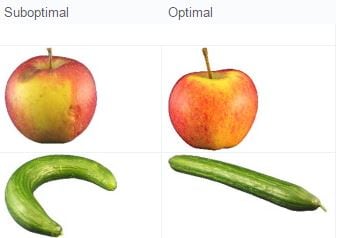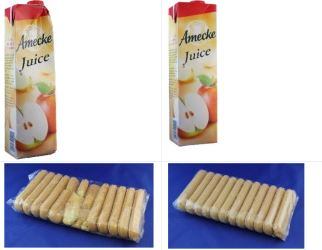Using an online survey involving over 4,000 consumers from five different northern European countries (Denmark, Germany, Sweden, Norway and the Netherlands), Dutch researchers evaluated under which conditions people choose to buy ‘suboptimal products' and what could encourage them to choose these imperfect goods more often.
They found preferences depend greatly on whether the consumer is in a supermarket or in the home, as well as factors such as age and nationality.
Suboptimal products included any product that deviated from the standard in terms of damaged packaging, date labelling or appearance, without impacting the product's quality or safety.

Who's buying?
German consumers were more likely to buy imperfect products in a supermarket. In the home, however, respondents from the Netherlands and Norway were more likely to eat damaged food.
Personal values also played a part, such as whether an individual was committed to environmental sustainability or value.
Younger consumers were found to be more open to purchasing and consuming suboptimal products, and to have a lower tendency to waste suboptimal products.
Consumers who regularly shop and cook were also more likely to buy suboptimal foods in supermarkets.
The price is right
Discount preferences depended on the type of product, with consumers wanting a higher discount before they were willing to buy milk or yoghurt one day before the best-before date or broken biscuits, compared to the bent cucumber or to the indented carton of juice.
“The current study provides useful recommendations for both supply chains (retailers) and policy makers. First, the results indicate that consumers seem to be sensitive to discounts on suboptimal products, and that the majority of consumers is willing to purchase any type of suboptimal product when a discount is given,” wrote the researchers, led by Ilona E. de Hooge from Wageningen University.
“This suggests that product discounts can be a practice that is worth expanding, as it can generate a favourable consumer response. Yet, to be efficient, discounts should be in line with the product and its flaw. Based on the present data, it seems that efficient price discounts may be low for a fresh, odd-shape produce or too high for an apple with a spot.”
Inglorious fruit and vegetables
However, some retailers have already been successful in the launch of temporary marketing campaigns to promote suboptimal fruit. French retailer

Intermarché’s ‘Inglorious fruit and vegetables’ and Dutch supermarket Albert Heijn’s ‘Buitenbeentjes’ are just two examples.
There are also some small-scale manufacturers that source aesthetically imperfect but safe ingredients to make processed foods.
British start-up Snact makes fruit jerky made entirely from fruit that would have been discarded while Dutch brand Kronkrommer makes soup from fruit and vegetables that would otherwise be discarded.
This perceived ‘lesser quality' of discounted foods is something Kronkommer (whose name is a play on the Dutch words for wonky and cucumber) is fighting against.
It praised retailers, such as Intermarché, for their efforts in selling imperfect fruit and vegetables but has asked them to stop underselling them.
“Our ultimate goal is to see wonky veggies on the shelves, for the same price as their 'perfect' brothers and sisters,” it says.
Source: Food Quality and Preference
Published online ahead of print September 2016, doi.org/10.1016/j.foodqual.2016.09.012
“This apple is too ugly for me!: Consumer preferences for suboptimal food products in the supermarket and at home.”
Authors: Ilona E. de Hooge et al.
